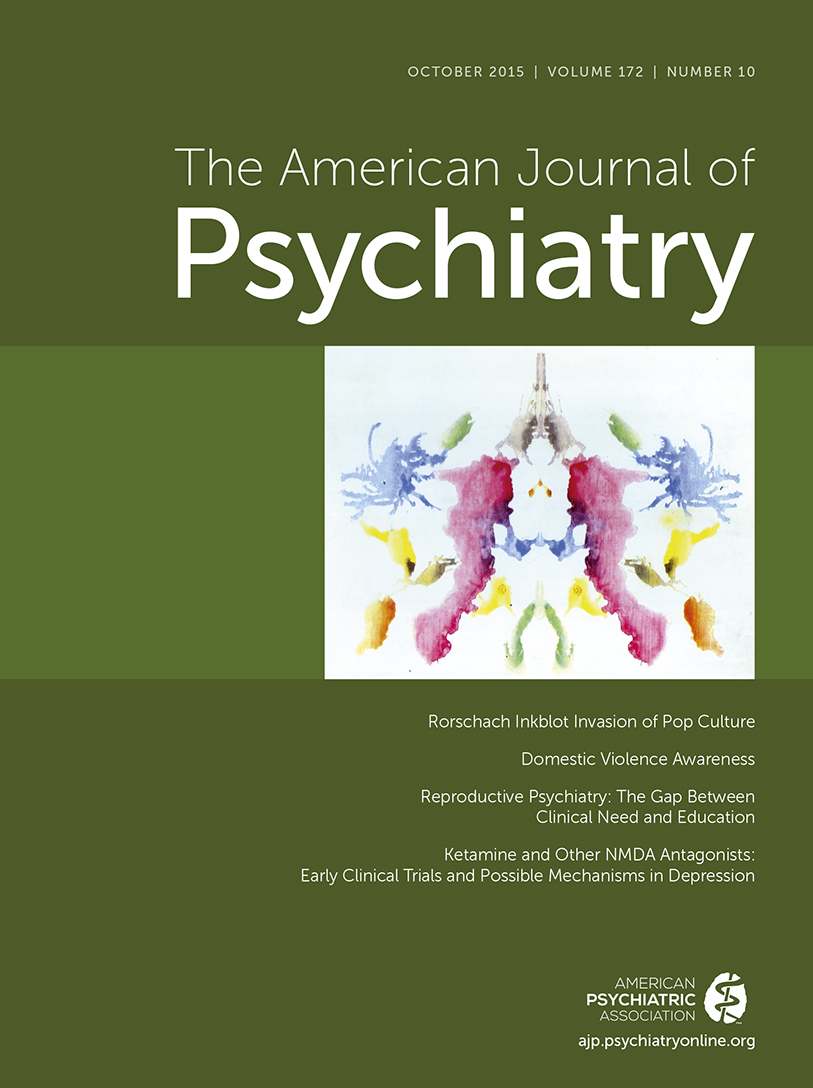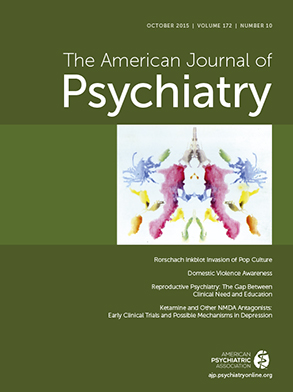Funding Information
Dr. Newport has received research support from Eli Lilly, GlaxoSmithKline, Janssen, NARSAD, NIH, and Wyeth; he has served on speakers’ bureaus for AstraZeneca, Eli Lilly, GlaxoSmithKline, Pfizer, and Wyeth; and he has served on the advisory board for GlaxoSmithKline. Dr. Carpenter has served as a consultant for AbbVie, Magstim, Naurex, Taisho (Helicon), and Takeda/Lundbeck; and she has received research support from Cervel Neurotech, NeoSync, Neuronetics, and NIH. Dr. McDonald has received research support from Cervel Neurotherapeutics, the Health Resources and Services Administration, NIMH, the National Institute of Neurological Disease and Stroke, Neuronetics, Soterix, and the Stanley Foundation; he has served as a consultant for the Center for Devices and Radiological Health, the Food and Drug Administration, and the Neurological Devices Panel of the Medical Devices Advisory Committee; he is a member of the APA Council on Research and Quality representing ECT and Neuromodulation Therapies; he holds a contract with Oxford University Press to co-edit a book on the Clinical Guide to Transcranial Magnetic Stimulation in the Treatment of Depression; he serves on the editorial boards of the American Journal of Geriatric Psychiatry and the Journal of ECT; and he is Section Editor for Current Psychiatry Reports. Dr. Tohen has been employed with Eli Lilly; he has received honoraria from or consulted for Abbott, Alkermes, AstraZeneca, Bristol-Myers Squibb, GlaxoSmithKline, Elan, Eli Lilly, Forest, Geodon Richter Plc., Janssen/Johnson and Johnson, Lundbeck, Merck, Pamlab, Otsuka, Roche, Sepracor Wyeth, Sunovion, Teva, and Wiley Publishing; and his spouse has been employed with Eli Lilly. Dr. Nemeroff has received research/grant support from NIH; he has served as a consultant for Allergan, Clintara LLC, Eli Lilly, Gerson Lehrman Group Healthcare and Biomedical Council, Lundbeck, Mitsubishi Tanabe Pharma Development America, Prismic Pharmaceuticals, Roche, Shire, SK Pharma, Taisho Pharmaceutical, Takeda, Total Pain Solutions, and Xhale; he is a shareholder with Abbvie, Celgene, OPKO Health, Seattle Genetics, Titan Pharmaceuticals, and Xhale; he has served on scientific advisory boards for American Foundation for Suicide Prevention, Anxiety Disorders Association of America, Brain and Behavior Research Foundation (formerly NARSAD), Clintara LLC, RiverMend Health LLC, Skyland Trail, and Xhale; he holds patents for Method and devices for transdermal delivery of lithium (U.S. 6,375,990B1) and Method of assessing antidepressant drug therapy via transport inhibition of monoamine neurotransmitters by ex vivo assay (U.S. 7,148,027B2); he serves on the Board of Directors of American Foundation for Suicide Prevention, Anxiety Disorders Association of America, and Gratitude America; and he has received income sources or equity of $10,000 or more from American Psychiatric Association Publishing, Clintara, CME Outfitters, Takeda, and Xhale. Dr. Potash reports no financial relationships with commercial interests.

